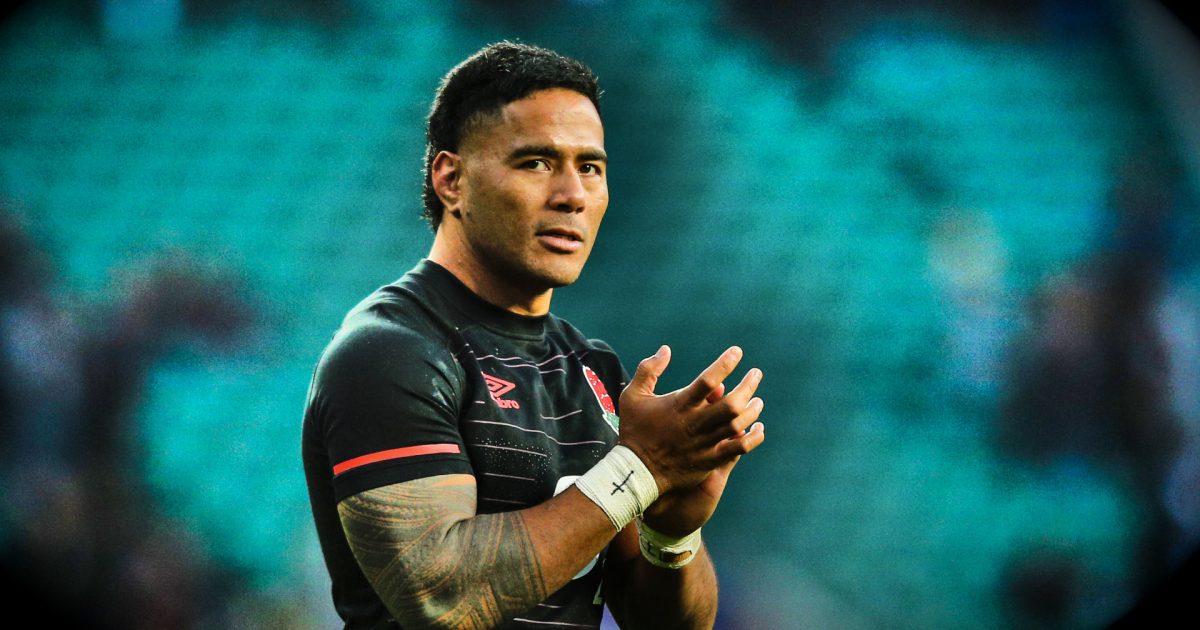Eddie Jones on why he's dropped Manu Tuilagi

Eddie Jones insists England are carefully managing Manu Tuilagi through a hectic autumn schedule after naming the destructive Sale centre on the bench for Saturday’s clash with Japan.
Tuilagi has been replaced at outside centre by rookie Guy Porter among five changes as England aim to bounce back from the 30-29 defeat by Argentina that opened the autumn.
With stiffer tests against New Zealand and South Africa to come, Jones is limiting the workload of his most explosive player in the hope of preventing his injury curse from striking again.
Until making his comeback against Argentina, the Sale wrecking ball of Samoan heritage had missed a year of international rugby because of hamstring and knee problems – the latest in a history of lengthy spells out of the game.
Jones admits there is an element of experimentation involved in preserving his fitness knowing he will be a crucial part of the midfield for next year’s World Cup.
“It’s all about workload. We’ve given him a lighter week of training. He’ll still be able to finish for us,” Jones said.
“We just feel that with Manu’s injury record, to play four big games in a row is probably not in his best interests at the moment.
“Whenever you’ve got a powerful player with soft tissue injuries, you’ve got to experiment a little bit.
“It’s about what’s the right training load, what’s the right kind of training, what’s the right rehabilitation, what’s the right recovery?
“You can’t go to a textbook and look up: ‘Chapter one – difficult players to manage’. There’s just no textbook for it, so it’s a matter of experimentation.
“It’s a matter of cohesion between the staff here and at Sale, the medical staff and strength and conditioning staff, and I think that’s being done really well.
“We’ve got him in a good position now, he played 60-odd minutes against Japan, he trained with us yesterday (Wednesday) and did most of the training.
“He’s in a really good spot, he looks lean, he looks healthy and we’ll get a good result from him off the bench.”
Billy Vunipola has also been demoted to a substitute role with Jones revealing that the high tempo game expected from Japan makes the more dynamic Sam Simmonds a better option at number eight.
“It’s just a change in roles between Sam and Billy. Sam’s got good pace, which is particularly important against Japan, so we feel that he will be suited to the start of the game,” Jones said.
Jack van Poortvliet is rewarded for making a significant impact as a second-half replacement against Argentina by displacing Leicester team-mate Ben Youngs at scrum-half.
Joe Cokanasiga makes way for Jonny May, who has overcome a dislocated elbow, on the left wing despite offering a carrying threat in the opening assignment of the Autumn Nations Series.
The second change to the pack sees David Ribbans make his debut in the second row in place of Saints team-mate Alex Coles, who won his first cap last weekend.
Jamie George completes his unexpectedly quick recovery from a foot injury to deputise for starting hooker Luke Cowan-Dickie but there is no place among the replacements for Jack Willis.
Jones coached Japan to a successful 2015 World Cup before being appointed England boss and knows they will be dangerous opposition at Twickenham on Saturday.
“Japan are a good team. They have the luxury of having long preparations and I’ve been the benefactor of that,” Jones said.
“I think the most cohesive teams in the world in the way they play are Ireland and Japan. They’ve almost got a sixth sense between their players because they practise so much together.”






























































